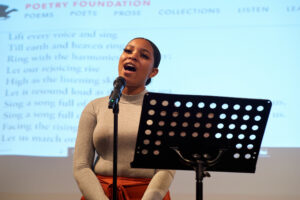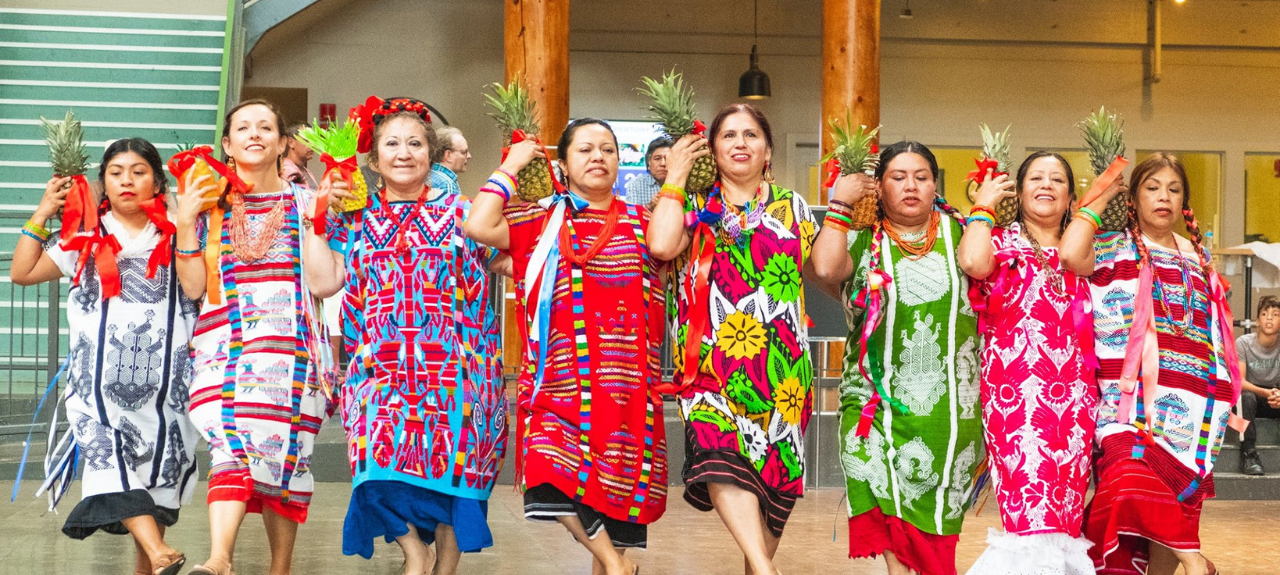Creative Equity Fund Announces New Request for Proposals (RFP) for 2021-2022 focused on Black- and Indigenous-led Nonprofits
Arts and culture are powerful tools for engaging community in collective change – igniting civil discourse, inspiring action, and helping us imagine and advocate for a just world. As referenced in ArtsFund’s recent Social Impact of the Arts study, arts advance positive and equitable outcomes in several impact areas, including youth development, health and wellness, and neighborhood vitality. Arts and culture also help us tackle one of our most pressing challenges: the effects of structural racism.
Seattle Foundation recently partnered with Byrd Barr Place and Cardea Services to conduct research about Black-led organizations, which demonstrated that Black residents in King County have faced immeasurable layers of harm due to ongoing structural racism, redlining, under-employment, the school-to-prison pipeline, and other systemic barriers. This research also revealed that Black-led organizations continue to tackle these challenges despite a dearth of philanthropic investment. For example, nearly 44 percent of Black-led organizations in King County who participated in the study reported having an annual operating budget of $250,000 or less. Almost two-thirds of survey respondents reported three months or less of cash reserves. For Indigenous-led organizations, the lack of funding is equally bleak – less than 1 percent of total community foundation giving nationwide goes to support Native American causes and organizations, according to 2019 research conducted by the First Nations Development Institute.

The Creative Equity Fund is taking a targeted approach to address these funding disparities and piloting a new strategy to create a cohort of Black and Indigenous-led organizations based in King County that funders can support and learn from over the next two years. For 2021-2022, Creative Equity Fund will direct a total of $600,000 to support community-based organizations in King County using arts and culture to advance their work toward racial justice. The application process opens on April 5, 2021 and closes on May 3, 2021. A cross-sector group of Black and Indigenous community members in the region will serve on the grants review panel and determine all funding recommendations. Funders do not make grant decisions in an intentional effort to model giving up power to communities most impacted by the structural disparities we seek to address.
“The United States is a country originally built by stolen people on stolen land. Thus, it is important for philanthropy to be moving untethered resources to Black and Indigenous communities,” says Jonathan Cunningham, Senior Program Officer at Seattle Foundation. “After two years of supporting BIPOC1 grantees in our previous cohort, with this next round of funding the Creative Equity Fund and its supporters are excited to explore an increased focus on Black and Indigenous organizations. These organizations will have an opportunity to collaborate together, and we will also be afforded the opportunity to learn from them as we work to decolonize philanthropy.”
Seattle Foundation administers The Creative Equity Fund, on behalf of a coalition of generous donors and supporters.
Some examples of work The Creative Equity Fund is looking to support include, but are not limited to:
The Creative Equity Fund is taking an expansive view of how Black and Indigenous-led are defined. While the focus will be on moving resources to organizations led by and serving Black populations that have been historically underfunded by philanthropy for centuries, groups from across the African Diaspora are eligible to apply. This includes Afro-Latinx, Caribbean, and African immigrant-led groups. Similarly, traditional Coast Salish organizations who are stewards of our region will also be prioritized. Indigenous-led groups representing populations globally are welcome to apply. More specifically, Pacific Islander-led nonprofits including Native Hawaiians, Samoans, Tongan, Fijian, Chamorros, Micronesians, Polynesians, and the entire Pacific Islander Diaspora are encouraged to apply given the sharp uptick in violence against the Asian American Pacific Islander communities.
Initially launched in 2018, as a funder collaborative, Creative Equity Fund is administered by Seattle Foundation and made possible thanks to the generous support from a collection of funders, including ArtsFund, 4Culture, Macklemore, Microsoft, Satterberg Foundation, Seattle Office of Arts & Culture, Seattle Foundation, The Sheri and Les Biller Family Foundation and individual philanthropists.
To date, the Creative Equity Fund has granted out over $400,000 to a cross-sector group of Black, Indigenous, and people of color-led nonprofits in King County. Their work in shaping this funding initiative’s evolution has been invaluable as nonprofit leaders, donors, and institutional funders gathered regularly over the last two years to learn more about innovative strategies and areas of collaboration that are driving racial justice work in this region tied to arts and culture.
“At Surge we apply anti-racist principles to organize in community on policy and advocacy, and the Creative Equity Fund supports our use of culture in that work. We create BIPOC-centered and -exclusive spaces that use art and community to create an environment in which our community feels safe, centered, and engaged on issues that directly impact them.”
—Jackie Vaughn, Executive Director, Surge Reproductive Justice, a former Creative Equity Fund grantee
Apply for the 2021/2022 Creative Equity Fund..
We encourage prospective grant seekers to view our FAQ to learn more specifics around eligibility, definitions and general questions before applying.
Prospective grant applicants can contact Seattle Foundation’s Senior Program Officer Jonathan Cunningham for additional assistance or questions.
1BIPOC refers to Black, Indigenous and People of Color communities, abbreviated as BIPOC.
*Image in post courtesy of Northwest African American Museum

